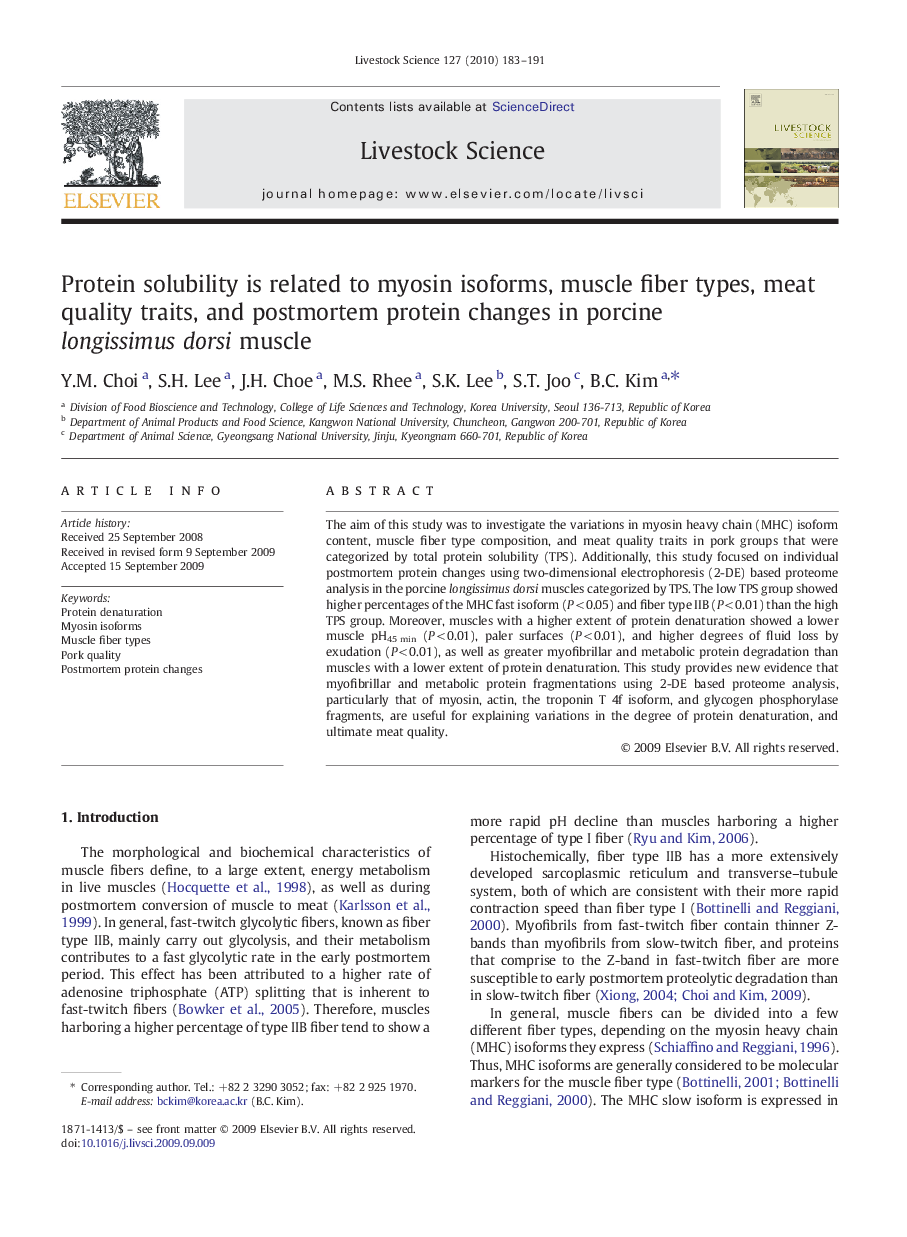| Article ID | Journal | Published Year | Pages | File Type |
|---|---|---|---|---|
| 2448090 | Livestock Science | 2010 | 9 Pages |
The aim of this study was to investigate the variations in myosin heavy chain (MHC) isoform content, muscle fiber type composition, and meat quality traits in pork groups that were categorized by total protein solubility (TPS). Additionally, this study focused on individual postmortem protein changes using two-dimensional electrophoresis (2-DE) based proteome analysis in the porcine longissimus dorsi muscles categorized by TPS. The low TPS group showed higher percentages of the MHC fast isoform (P < 0.05) and fiber type IIB (P < 0.01) than the high TPS group. Moreover, muscles with a higher extent of protein denaturation showed a lower muscle pH45 min (P < 0.01), paler surfaces (P < 0.01), and higher degrees of fluid loss by exudation (P < 0.01), as well as greater myofibrillar and metabolic protein degradation than muscles with a lower extent of protein denaturation. This study provides new evidence that myofibrillar and metabolic protein fragmentations using 2-DE based proteome analysis, particularly that of myosin, actin, the troponin T 4f isoform, and glycogen phosphorylase fragments, are useful for explaining variations in the degree of protein denaturation, and ultimate meat quality.
